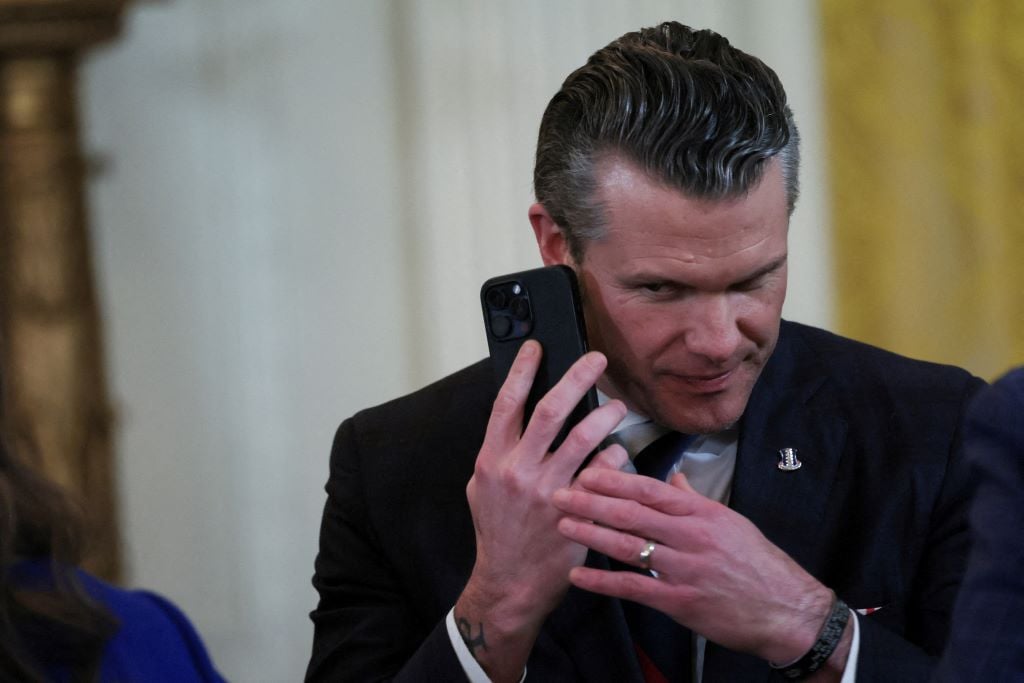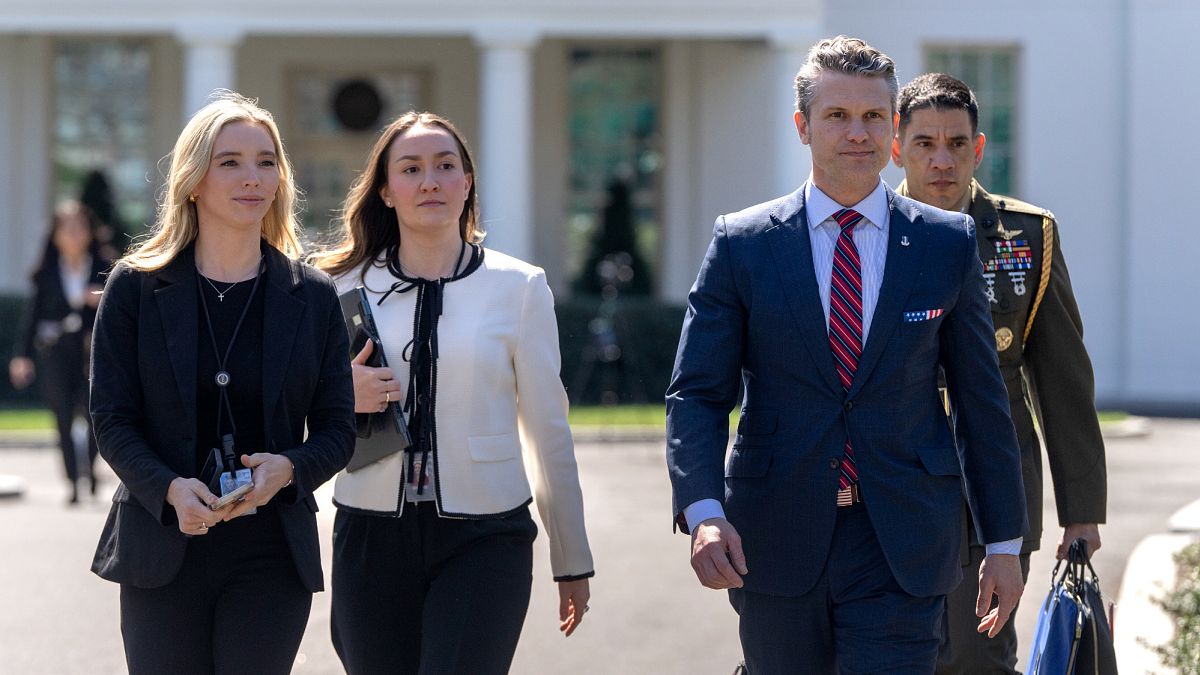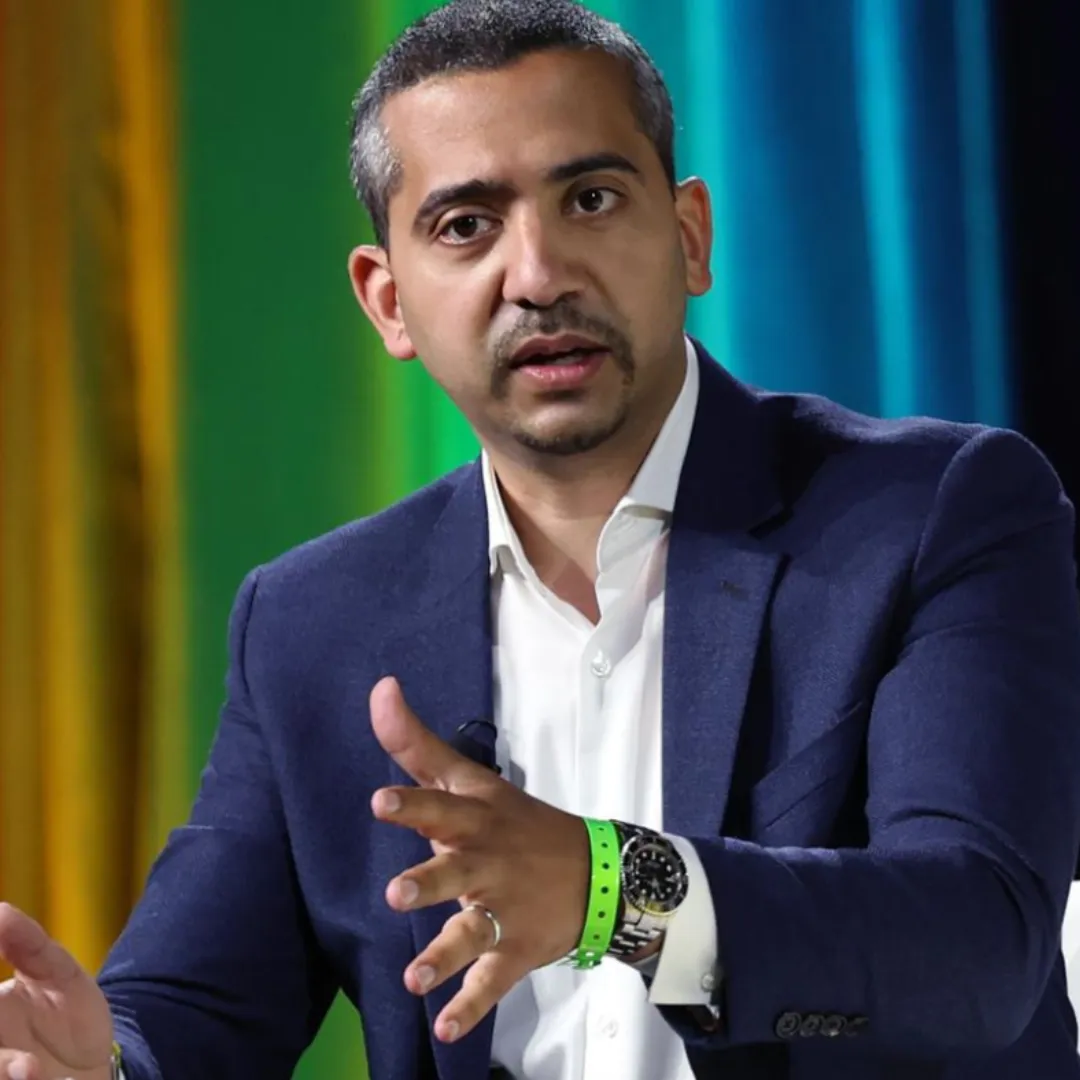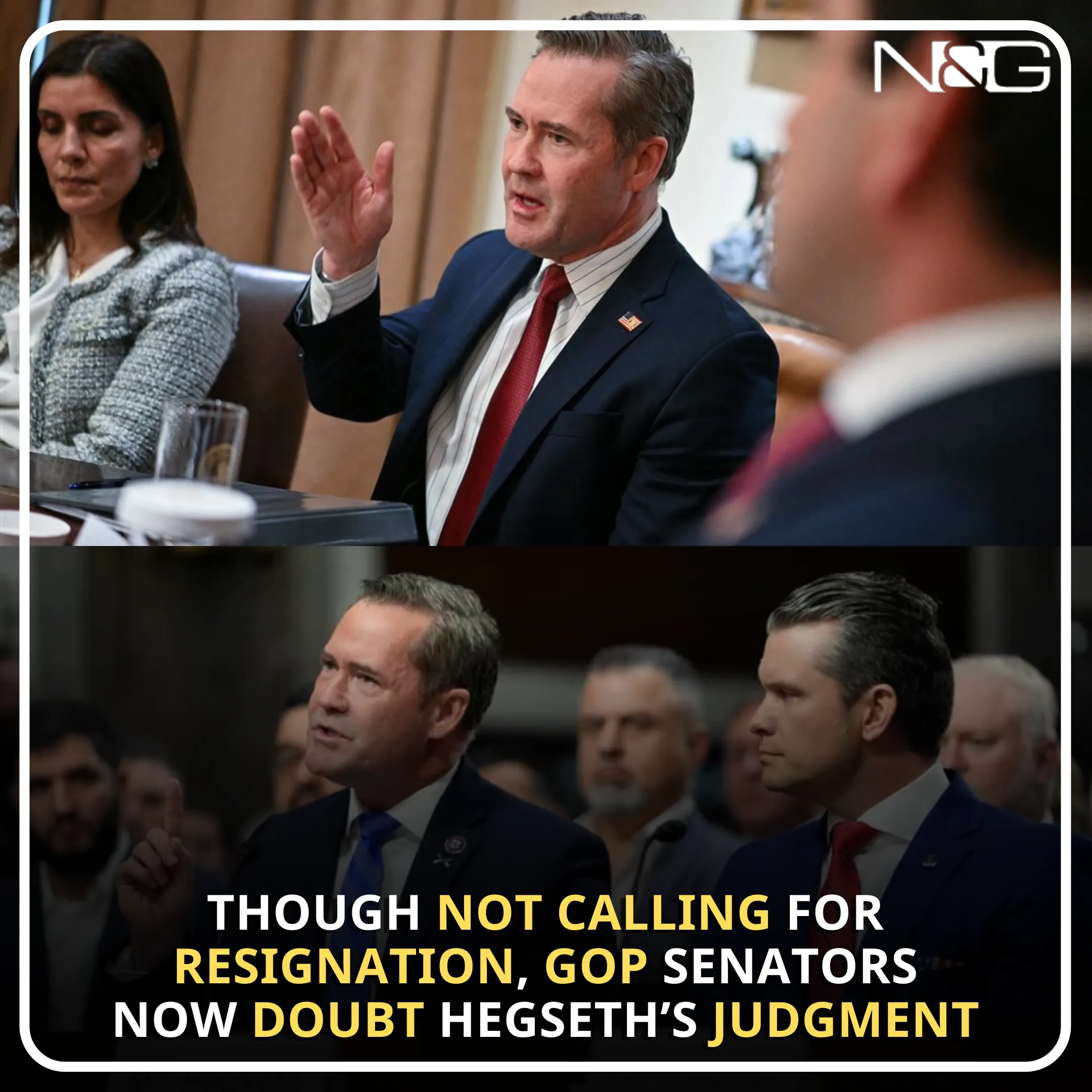It started with a ping.
Somewhere between a late-night policy decision and the immediacy of a modern messaging app, Defense Secretary Pete Hegseth found himself at the center of what is now shaping up to be one of the most politically charged internal investigations of the Trump administration’s second term.
At the core of the controversy: a Signal group chat used by Hegseth to discuss the details of a U.S. military strike on Houthi militants in Yemen — a conversation that allegedly included classified military information.
Most stunningly, the group chat also accidentally included a prominent journalist, raising alarms throughout the national security establishment and prompting a formal investigation by the Defense Department’s inspector general (IG).
Now, with lawmakers demanding answers and the White House brushing off the probe, the episode has reignited concerns about transparency, classified material handling, and the blurred line between informal communication and official policy in Trump’s Washington.
According to a memo released this week by acting inspector general Steven Stebbins, the investigation will focus on whether Hegseth violated Defense Department policy by using Signal — an end-to-end encrypted messaging app — to share details of the Yemen strike.
The watchdog will also look into whether the defense secretary shared classified information in the process.
The memo came after leaders of the Senate Armed Services Committee, alarmed by reporting in The Atlantic, called for a formal inquiry. The magazine’s editor-in-chief disclosed last month that he had been accidentally added to the group chat, where Hegseth and others were actively discussing the timing of the operation, the aircraft involved, and the weapons to be deployed.
That revelation stunned national security experts and fueled bipartisan concern. “After Sec. Hegseth jeopardized national security in the group chat, Trump [White House] tried to declare ‘case closed.’ I worked on bipartisan basis to ensure an independent investigation. Today, case opened,” said Sen. Jack Reed (D-R.I.), ranking member of the committee.
As the investigation ramps up, the Trump administration has sought to downplay the incident. Officials insist that the information shared in the Signal group was not classified and that the inclusion of the journalist was accidental and short-lived.
President Trump himself dismissed the entire story when asked by reporters. “Don’t bring that up again. … It’s such a wasted story,” he said on Thursday, clearly annoyed by the persistence of the issue.
Still, the White House’s deflections have only added fuel to the fire. Critics argue that the administration’s refusal to take the breach seriously points to a broader pattern of lax oversight and casual handling of sensitive information — a trend that has only worsened during Trump’s second term.
The Signal group reportedly included several top-ranking officials, including Vice President J.D. Vance, National Security Advisor Michael Waltz, and other Trump confidants.
According to sources familiar with the matter, the chat had been created as a way to facilitate real-time discussions on military operations and strategy — a digital “situation room” in their pockets.
But the casual nature of the chat quickly became a liability. Participants allegedly discussed operational timing down to the minute, with references to stealth bomber routes and drone payloads.
The uninvited journalist, whose presence went unnoticed for several hours, reportedly took screenshots — later used in his article exposing the breach.
Hegseth has denied that any classified information was shared and insisted that everything discussed was already “broadly known to our partners and allies.”
The Pentagon’s acting inspector general, Steven Stebbins, announced the launch of the investigation in a letter to Hegseth earlier this week. In it, he stated the IG will determine whether the Defense Secretary “complied with DOD policies” regarding the handling of sensitive and potentially classified information.
Stebbins also indicated that Hegseth would likely be required to turn over his devices and chat records for inspection — a move that some in the administration fear could set a precedent for broader scrutiny of informal communication methods used by senior officials.
Stebbins himself is a notable figure in this drama. Appointed acting IG after Trump purged more than a dozen watchdogs during his first term, Stebbins has maintained a low profile — until now.
The investigation, he says, will be conducted from both Washington, D.C., and U.S. Central Command headquarters in Tampa, Florida — suggesting a wide scope that includes operational and strategic review.
For a White House that prides itself on disruption and defiance, the Signal scandal has proven an unexpected thorn. While Trump remains defiant, his team is clearly rattled by the political implications — especially as the midterms approach.
“Elites are always going to freak out over tech they don’t understand,” one senior White House aide told me. “But this isn’t 1995. This is how people communicate.”
That may be true — but as critics point out, modern communication doesn’t excuse recklessness. The Signal app, while secure, is not officially sanctioned for high-level operational planning, especially when those messages could fall into the wrong hands — or, in this case, simply the wrong inbox.
Lawmakers across party lines are demanding answers. Several members of the Senate Intelligence and Armed Services Committees are pushing for mandatory briefings on communication protocols and the classification chain of command. “This isn’t just a tech mistake,” said Sen. Tammy Duckworth (D-Ill.). “This is a breach of trust.”
Pete Hegseth has long been a lightning rod — a former Fox News host turned Pentagon boss whose combative rhetoric and loyalty to Trump earned him the top job. His push for military reform and willingness to clash with traditional Pentagon leadership made him a hero to MAGA loyalists.
But his shoot-from-the-hip style may now be catching up with him. “This is classic Hegseth,” said a former senior Pentagon official. “He talks like he’s still on cable news. He doesn’t see the difference between messaging and military planning.”
The Signal scandal may not end Hegseth’s tenure, but it has undoubtedly weakened his standing. Even Trump allies admit privately that the Defense Secretary has become a “management problem,” someone who too often acts on instinct without coordinating with the chain of command.
“He’s a fighter,” said one adviser. “But even fighters need rules of engagement.”
Beyond Hegseth, the Signal probe raises deeper questions about how Trump’s second-term government is functioning. With many traditional guardrails removed, and informal communication channels favored over institutional process, critics say the administration is increasingly vulnerable to missteps — or worse.
The journalist’s accidental inclusion in a war-planning chat isn’t just embarrassing; it’s emblematic of the improvisational governance style that defines Trump’s Washington.
“Governments don’t run on vibes,” said a former national security advisor under President Obama. “They run on systems. When you abandon those systems, you invite chaos.”
For Stebbins and the Inspector General’s office, the investigation is more than just about Pete Hegseth — it’s a test of whether internal accountability can still function in a government shaped by loyalty and improvisation.

If Stebbins is able to conduct a rigorous and independent inquiry — even in the face of White House resistance — it could restore some measure of credibility to an oversight apparatus many believe has been neutered under Trump.
If he fails, the consequences may reach far beyond one group chat.






